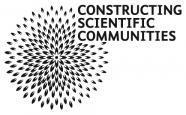BSHS Conference, St. Andrews
Amidst the beautiful surroundings of the University of St. Andrews, the annual conference of the British Society for the History of Science took place between 3-6 July. While the weather gods appeared to have mixed feelings towards historians of science, pouring sunshine on us one day, before the more familiar onset of drizzly rain the next, for delegates a fantastic line-up of papers, roundtables, events and entertainment were to be enjoyed. Beginning proceedings on Thursday evening our very own Prof. Sally Shuttleworth gave the plenary lecture, ‘National Health is National Wealth: Victorian Visions’, which focused upon Benjamin Ward Richardson, the physician and sanitary reformer. Richardson was an apt figure to help kick off-proceedings, not just because of his connections with the University (he gained his medical degree from St. Andrews) but because Richardson’s vast array of interests – from dress reform to teetotalism to animal welfare – nicely set the scene for the striking variety of topics that were to be discussed at the conference.
Notable highlights for this reviewer included the first panel ‘Semantic History of ‘Thinking about Science’ in the Twentieth Century’, organised by Robert Bud and which included a fascinating paper from Benoît Godin, who carefully unpacked the conceptual history of innovation – a word frequently used without much thought to its historical contingency. Particularly relevant to our own project, Saturday saw Aileen Fyfe and her team at St. Andrews discuss their project Publishing the Philosophical Transactions which is a four-year AHRC funded project looking at the cultural, economic and social history of that journal. Their panel deftly raised a plethora of issues that warrant consideration when studying the history of scientific journals, from the relationship between authors and editors, the profitability of ‘learned’ journals (or lack thereof) and the often overlooked role of publishers in the shaping of scientific knowledge on the pages of the periodicals.
On Sunday the Constructing Scientific Communities team then had an opportunity to present their work to the conference. Chaired by Prof. Shuttleworth the panel first saw Dr. Geoff Belknap and Dr. Sally Frampton introduce their research projects. Geoff gave an overview of his planned research project, which is analysing the use and value given to illustrations reproduced within Natural History periodicals in the mid Victorian period. Geoff is particularly interested in how the illustrated content of a periodical acted as a venue for amateur natural historians to participate in scientific debate. Sally then discussed her research on medical periodicals, examining the different networks that can be revealed when looking at ‘medical’ participation as opposed to ‘scientific’ participation and where the role of the ‘amateur’ or ‘layperson’ was (and perhaps still is) constructed differently. Finally Prof. Gowan Dawson concluded the panel with an intriguing case study of amateur geologist William Denton and his wife Elizabeth, who were advocates of psychometry in the mid- nineteenth century. The Denton’s theorised that by placing paleontological fossils on one’s forehead, detailed visions of extinct animals might be evoked. Claims such as theirs suggested a form of scientific investigation based on supernatural instinct rather than scientific training, and suggested the possibility of self-taught and female ‘citizen scientists’ offering guidance to the scientific elite.
--Sally Frampton



